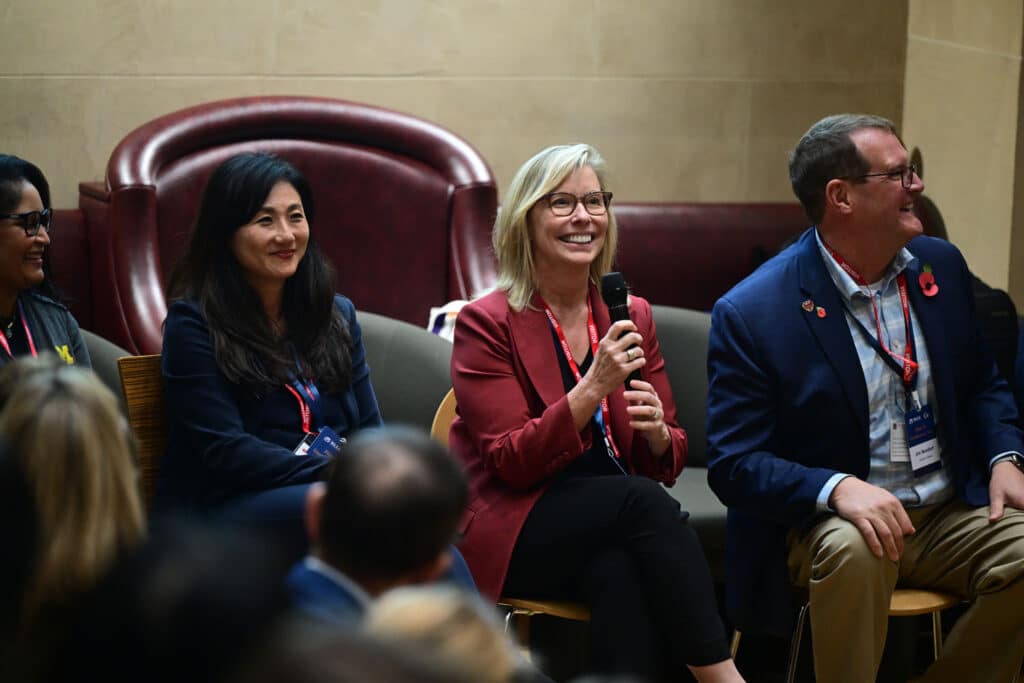Given the challenges faced by schools in both the state and independent sectors over the last three years, there has never been a better time or a greater moral imperative for transformative partnership work between schools – and between sectors.
When I was a Deputy Headteacher in the state sector at both Oasis Academy Hadley and Wembley High Technology College, I saw first-hand how transformative partnerships raised aspirations and outcomes whilst supporting teacher development. Everyone was in it together, and this literally changed lives. This is why when coordinating education policy, strategy and engagement with the National Citizen Service (NCS), which was my role before I joined Eton College, I prioritised a move away from infrequent, transactional and short-term partnerships with schools to instead build a system where we worked in collaboration with school leaders to devise the most appropriate programmes of support based on their specific needs.
A compelling partnership offer must at its core be accessible, operational and above all else fully credible in what it can offer and its intended impact. A failure to illustrate these core principles to leaders and teachers is often what holds back even the most impressive partnership opportunities. This is why Eton’s outreach work in Dudley, Middlesbrough and Oldham will deliver such positive outcomes for students, teachers and wider communities.
Irrespective of the outcome of the bid and whether we build these new schools, we wish to forge strong collaborative partnerships with existing schools across these regions.
Along with our partner Star Academies, we are intending to put in a bid to the next wave of the free school programme to open sixth form schools in Middlesbrough, Oldham and Dudley. These new schools will focus on providing a pathway for bright children from disadvantaged backgrounds to progress into top-tier universities or high tariff courses. Irrespective of the outcome of the bid and whether we build these new schools, we wish to forge strong collaborative partnerships with existing schools across these regions. Our aim is to develop a wide outreach programme specifically focused on the unique needs of these 11-16 schools.
Curriculum development, subject-specific support, personal development and accelerated learning programmes all enhance provision for students and ensure teachers receive the best possible support, for example with CPD. But most importantly, establishing best practice networks will embed a genuine and reciprocal relationship with existing schools and communities.
This is a landscape I know well. My background is in developing and delivering collaborative partnerships. Whilst at NCS, I created a unique partnership and outreach programme designed to support schools and young people going through some of the toughest challenges ever seen in modern education. What made the offer so unique and enticing? It was as adaptable and as bespoke as necessary and steeped in credibility. Schools were offered a variety of pre-built resources that focused on personal development.
In my search for comparable examples of education disruption in the recent past, I examined New Orleans, Louisiana (NOLA) in the aftermath of Hurricane Katrina in 2005.
When we entered our first lockdown in March 2020 and in-person education ended for the majority of the school population, young people and the education sector faced an unprecedented challenge. In my search for comparable examples of education disruption in the recent past, I examined New Orleans, Louisiana (NOLA) in the aftermath of Hurricane Katrina in 2005. After interviewing school leaders from the affected areas, I identified four areas of the recovery where NCS could feasibly provide leadership: social mixing, social cohesion, social mobility and social action. It also became clear how we could support schools in curriculum management, teacher development and Ofsted preparation. Thus, Skills Booster was born; winning widespread government support and engagement from school leaders.
To date, Skills Booster has supported 174,743 students in over 500 institutions ranging from full cohorts of Year 11s and Year 12s to smaller targeted groups of students. In many of these institutions, Skills Booster is now part of the fabric and structure with this new academic year seeing teacher-led adaptations and most importantly the creation of best practice networking to expand the impact and scope of provision.
What makes Eton’s potential partnerships with schools in Dudley, Middlesbrough and Oldham particularly exciting for me is the sheer scale and size of what we as an institution can provide and how we can build long-term, sustainable and collaborative relationships with our colleagues in these areas. These are communities where, even before the pandemic, the challenges and struggles were acute. It’s now all the more imperative to foster these partnerships. Our goal is to build the most impactful support for young people, teachers and communities. This can only be achieved by working together.



